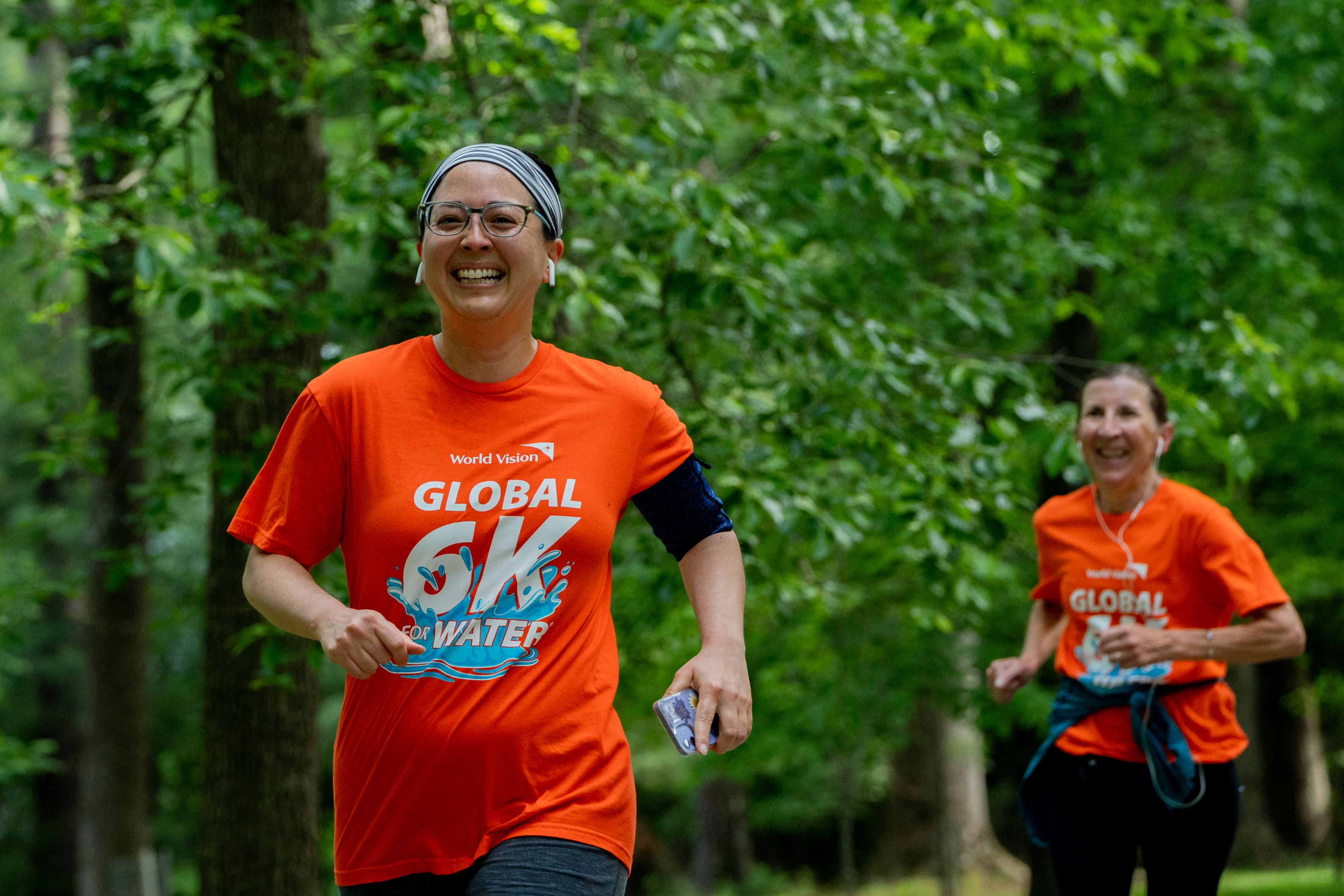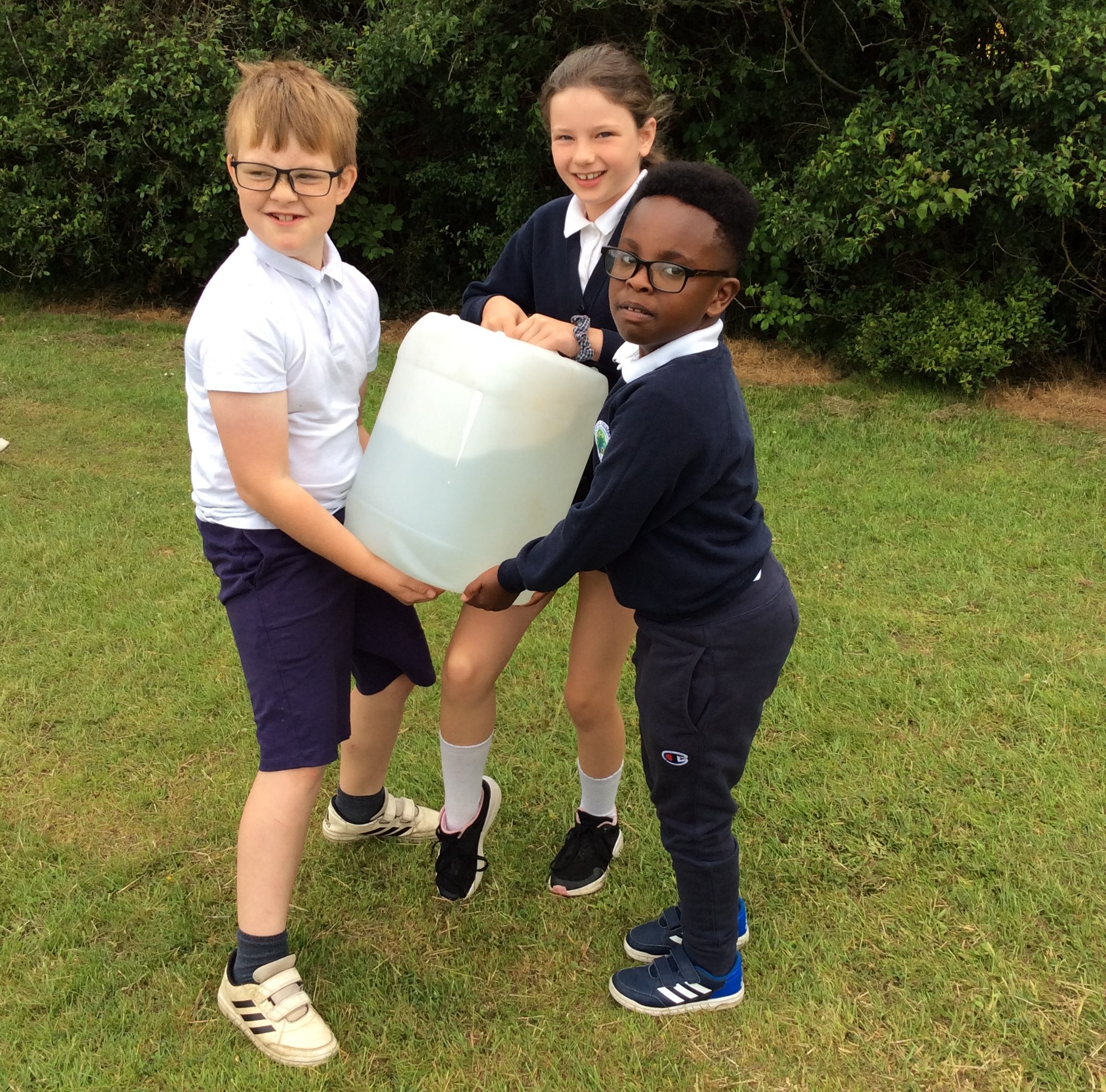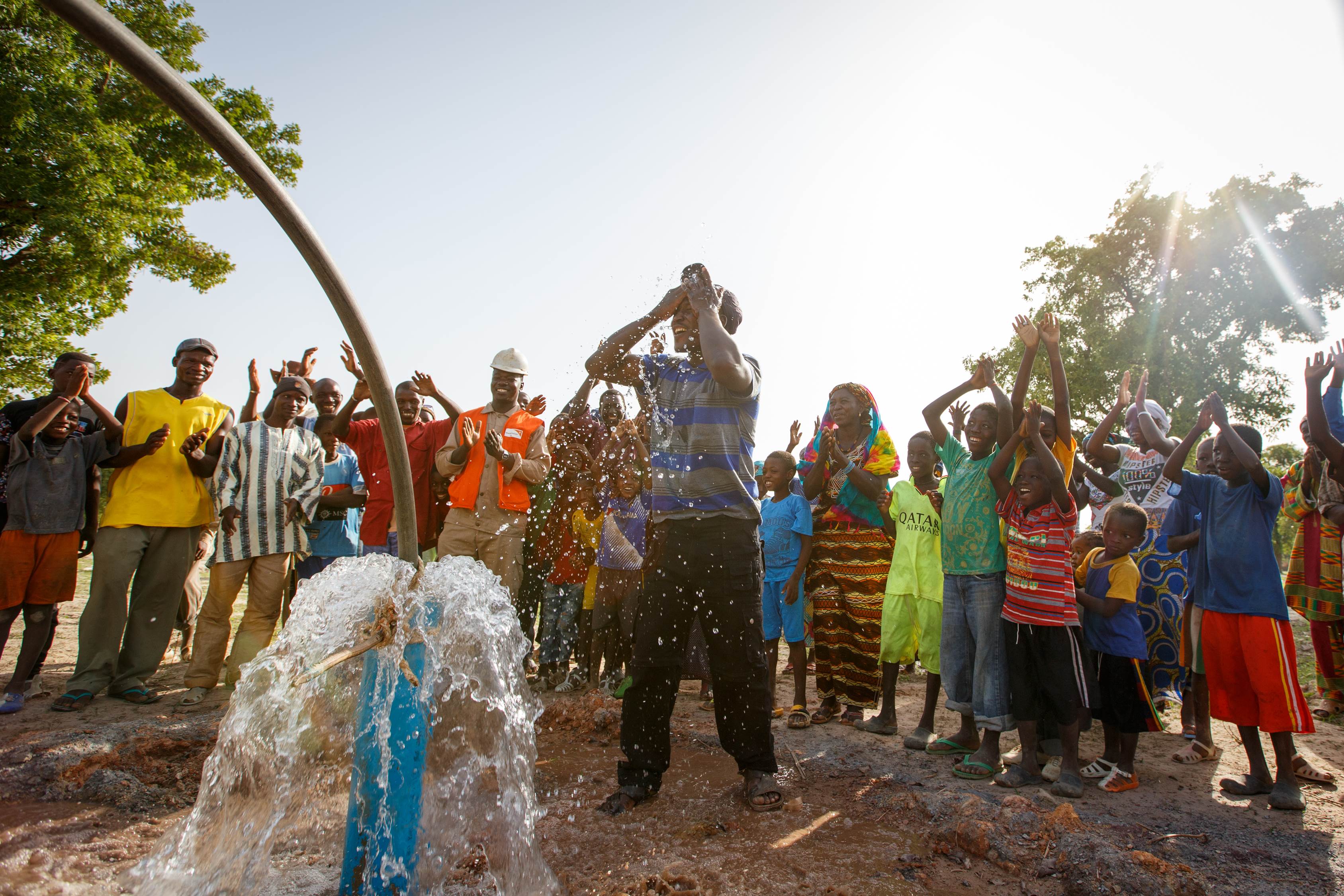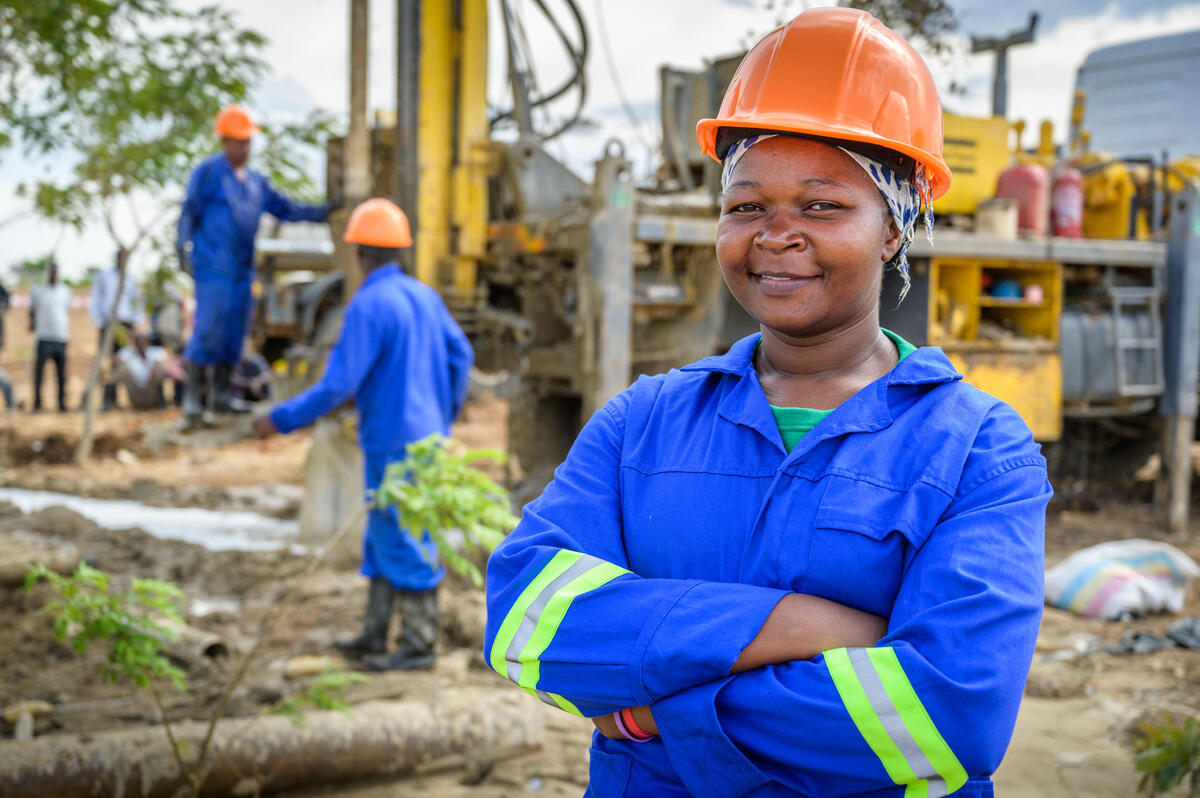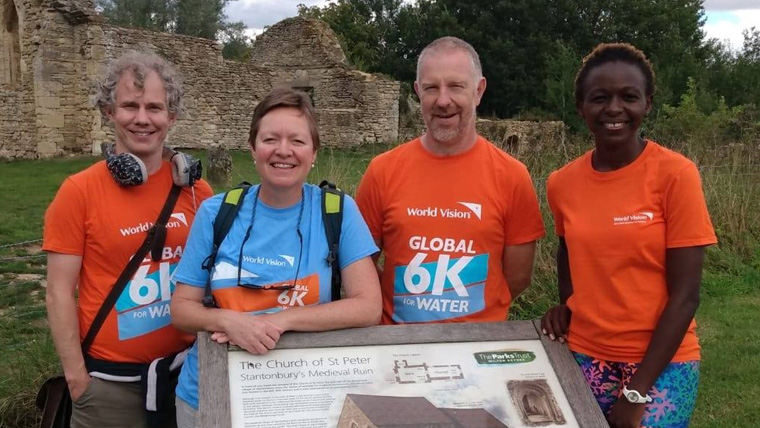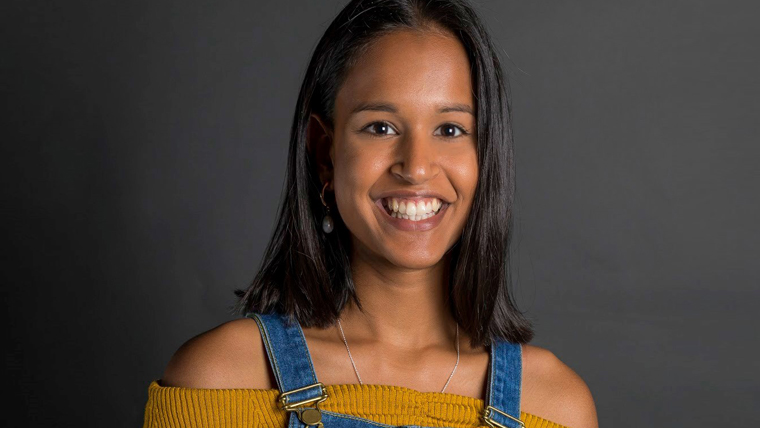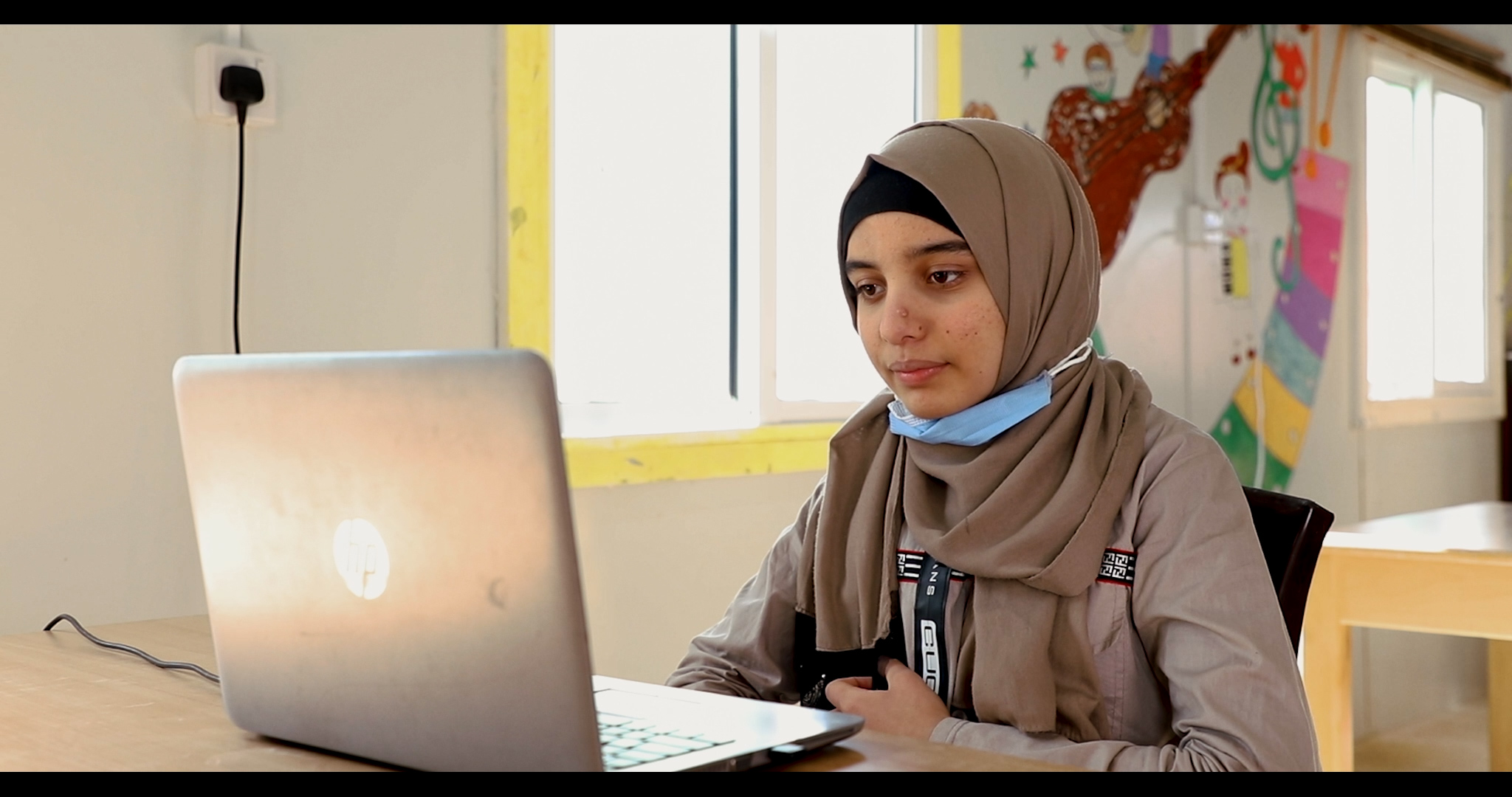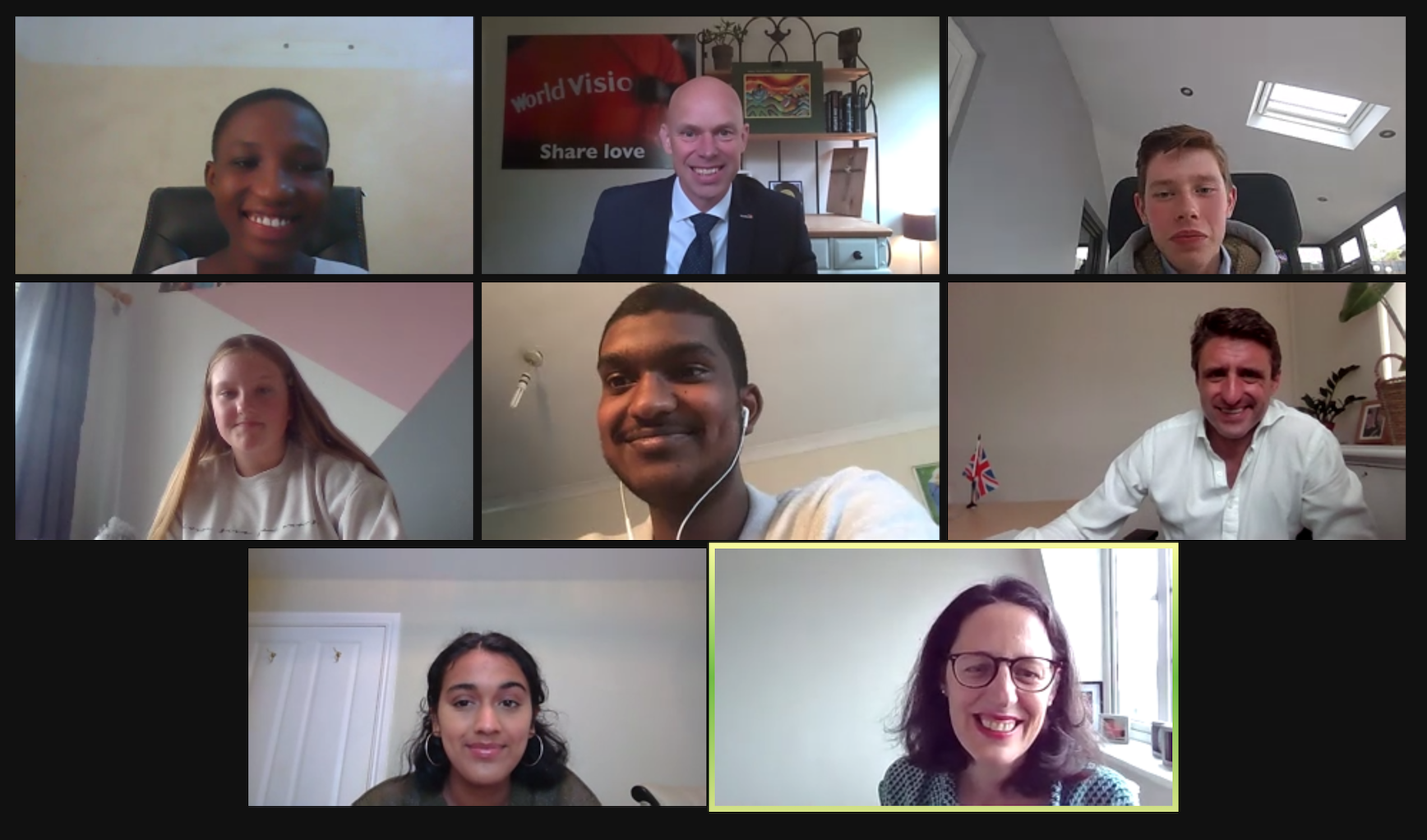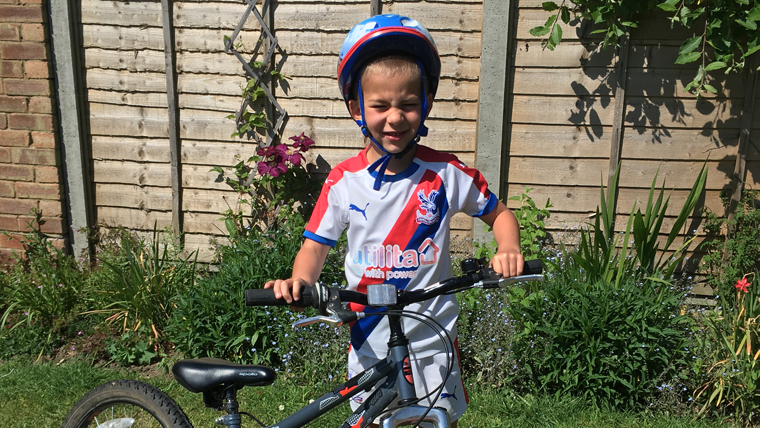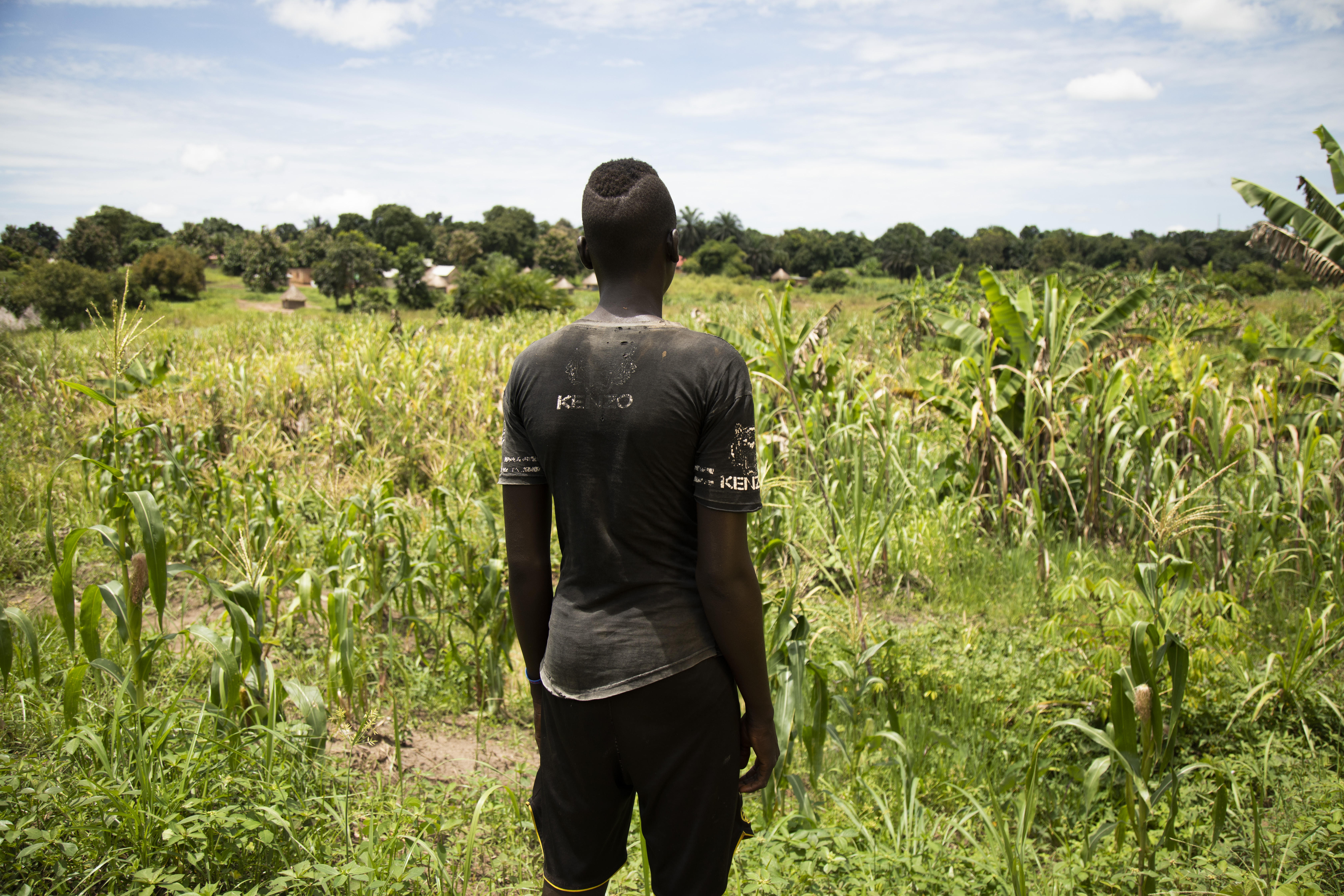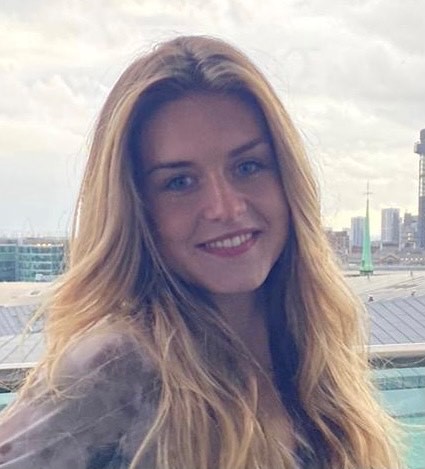
Water, the source of opportunity
When is a job not a job? When it’s a calling
Shaping the future
20-year-old Elin from Berkshire recently completed a work placement with World Vision UK. While she was discovering the impact for vulnerable children, those children had an impact on Elin herself.
As an undergraduate Psychology student at the University of Warwick, I was delighted to undertake a placement at World Vision UK, helping to report the impact of their work around the world.
My whole life I have grown up in a privileged environment, where water has never been a source of worry. Growing up, I was aware of water struggles around the world (it would be on the news etc.), but I was naïve as to how broad and widespread the impact was, because that was never my reality, and it was hard to comprehend. I took water for granted.
As I matured, I became increasingly aware of the issue of water famine, mainly because I began to take an interest in my South African heritage. South Africa is very susceptible to the effects of El Niño, resulting in devastating changes to the environment: droughts and water shortages leading to planned water supply cut-off. At the same time seasonal flooding effecting the townships. Speaking to a family member in Cape Town, she described her stepson as ‘A child of drought’, who has had to grow up consciously aware and respectful of water usage, each night asking whether he should keep the water he has just washed with to use for the toilet flush. This is something that I have grown to understand, rather than directly experiencing it myself.
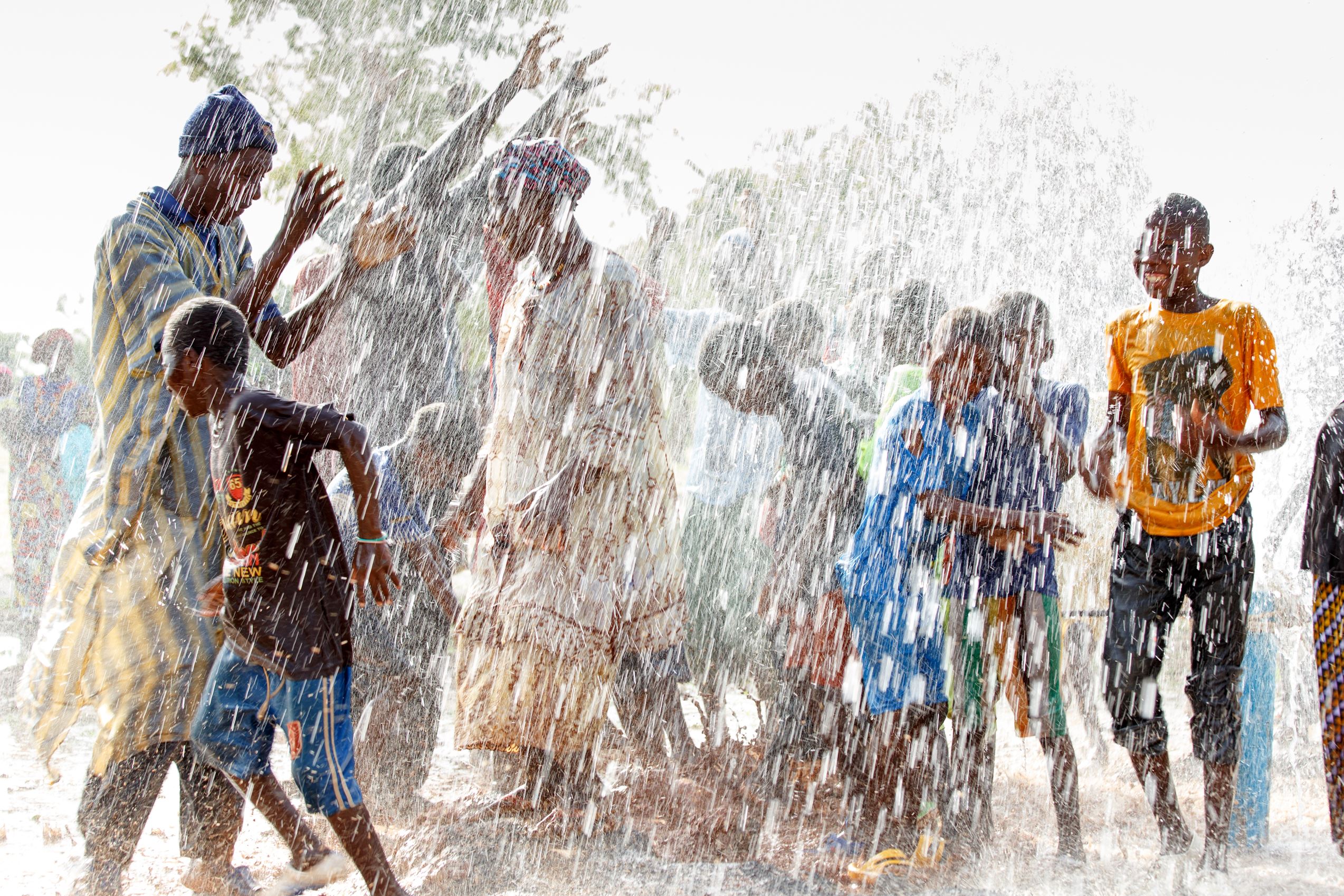
World Vision is the leading NGO provider of clean water in the developing world, reaching someone every 10 seconds with clean water.
World Vision has enlightened me
785 million people worldwide lack access to clean water.
And World Vision reaches someone new with clean water, every 10 seconds.
To put that into perspective, 8,640 people that currently lack clean water are reached everyday through World Vision’s ground-breaking work.
I see this as not just simply securing access to clean water, but also to a whole range of wider positive impacts. This is what has been made hugely apparent to me during my placement – water has a crucial role on wellbeing as a whole.
It is needed for:
- Sanitation, especially during the COVID-19 pandemic
- Maintaining health, by avoiding waterborne diseases.
- Nutrition from the minerals in drinking water and the use of clean water in cooking practices.
- Sustaining and improving community livelihood through improved food production, health and education.
Adequate water supply can even help children avoid child labour and violence. Due to homes being far from a water supply children - especially girls - spend more time collecting water rather than attending school, leading to school absenteeism. Girls often have to walk several miles wary of the risks of sexual assault on the way.
For me, these points highlight the vicious cycle that a drought can cause.
For example, a lack of water limits farming practices, which then limits the availability of food. This can lead to an increase in child labour to supply for the family (e.g. walking long distances to collect water), stopping children from being able to attend school, decreasing their overall wellbeing.
This goes to show how a lack of water is a source of many issues for vulnerable children; availability of clean water can solve so much.
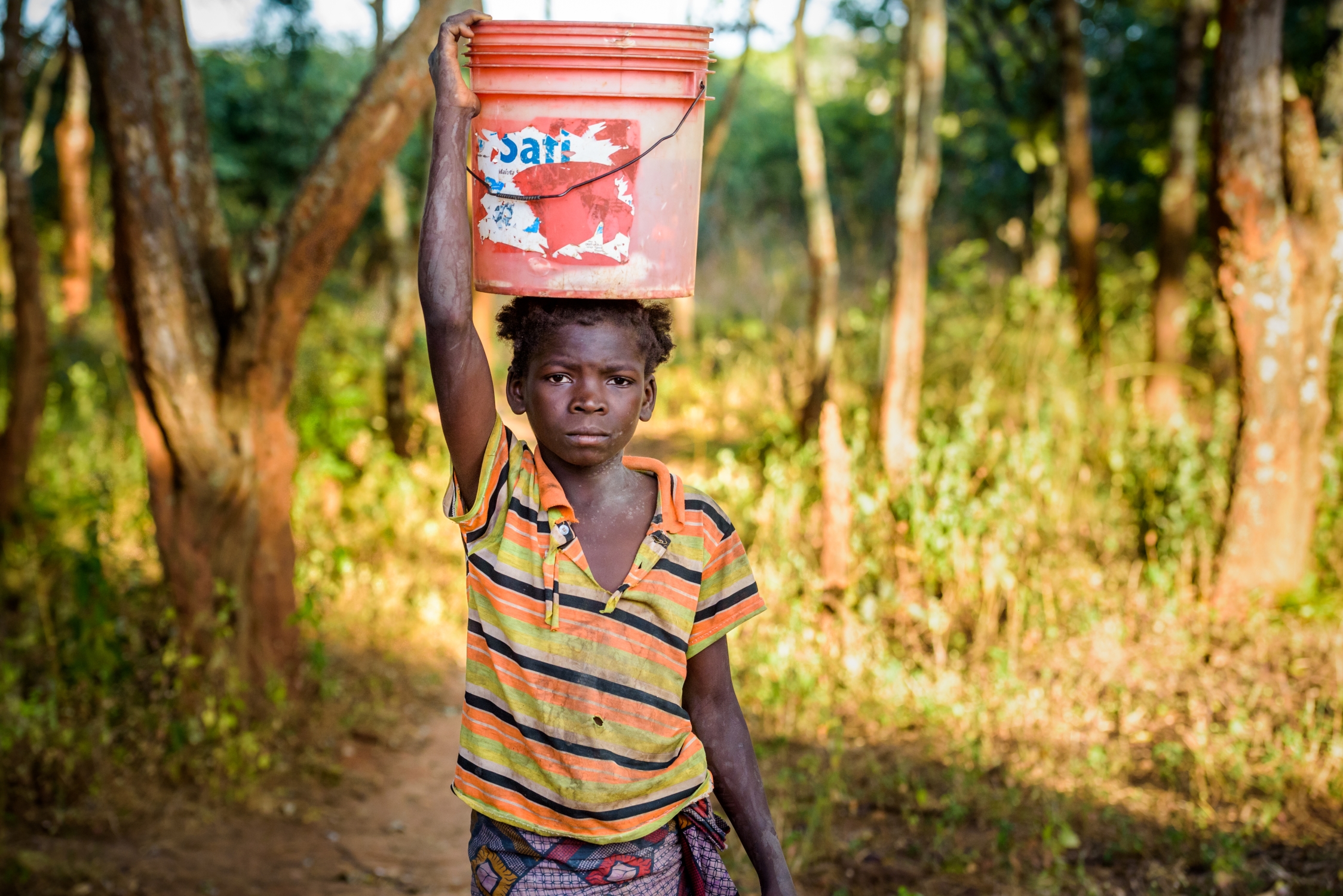
Zambia Drought Response
During my time at World Vision UK, I have had the opportunity to read about the activities achieved in various emergency responses. A project that particularly resonated with me was the Zambia Drought Response 2019/20, as I can see a great overlap with the South Africa water crisis. Additionally, I can see that at the heart of World Vision’s response there is big focus on accessible water, highlighting that water is a source of opportunity.
The project, funded by the Foreign Commonwealth and Development Office for example, dug 45 boreholes allowing for accessible water. Furthermore, there was also a great focus on providing farming resources; all targeted households received seeds, and all farmers reported using the seeds given. This combination of outputs aided sustainable food production, helping to avoid the ‘vicious cycle’ that a drought can cause.
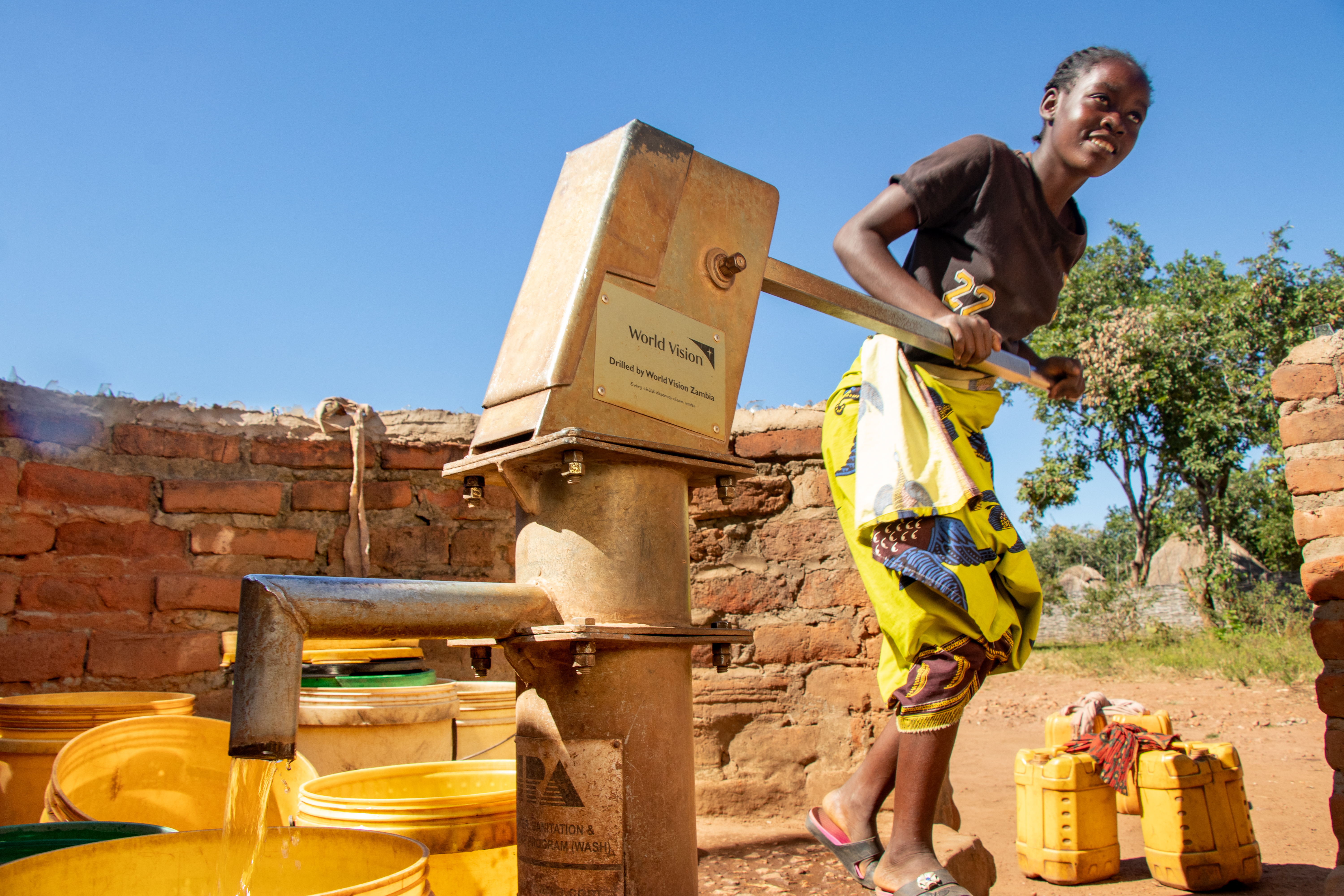
Otiliya's story
14-year-old Otiliya used to have to wake up at 4am to go collect water with her mother, and then spend up to five hours queueing because of the high demand for water in the village. Now, with the installation of a new borehole, she can go and collect water just five minutes from her house.
Otiliya shared some of her thoughts and feelings towards the installation of the community borehole:
“I am so happy that World Vision built us another borehole. We now have clean water near our house, and now I don’t get tired that much anymore… I have more time for school and more time to play with my friends.”
Here, a prime example of how clean water can create life opportunities for a child, beyond having a safe drink.
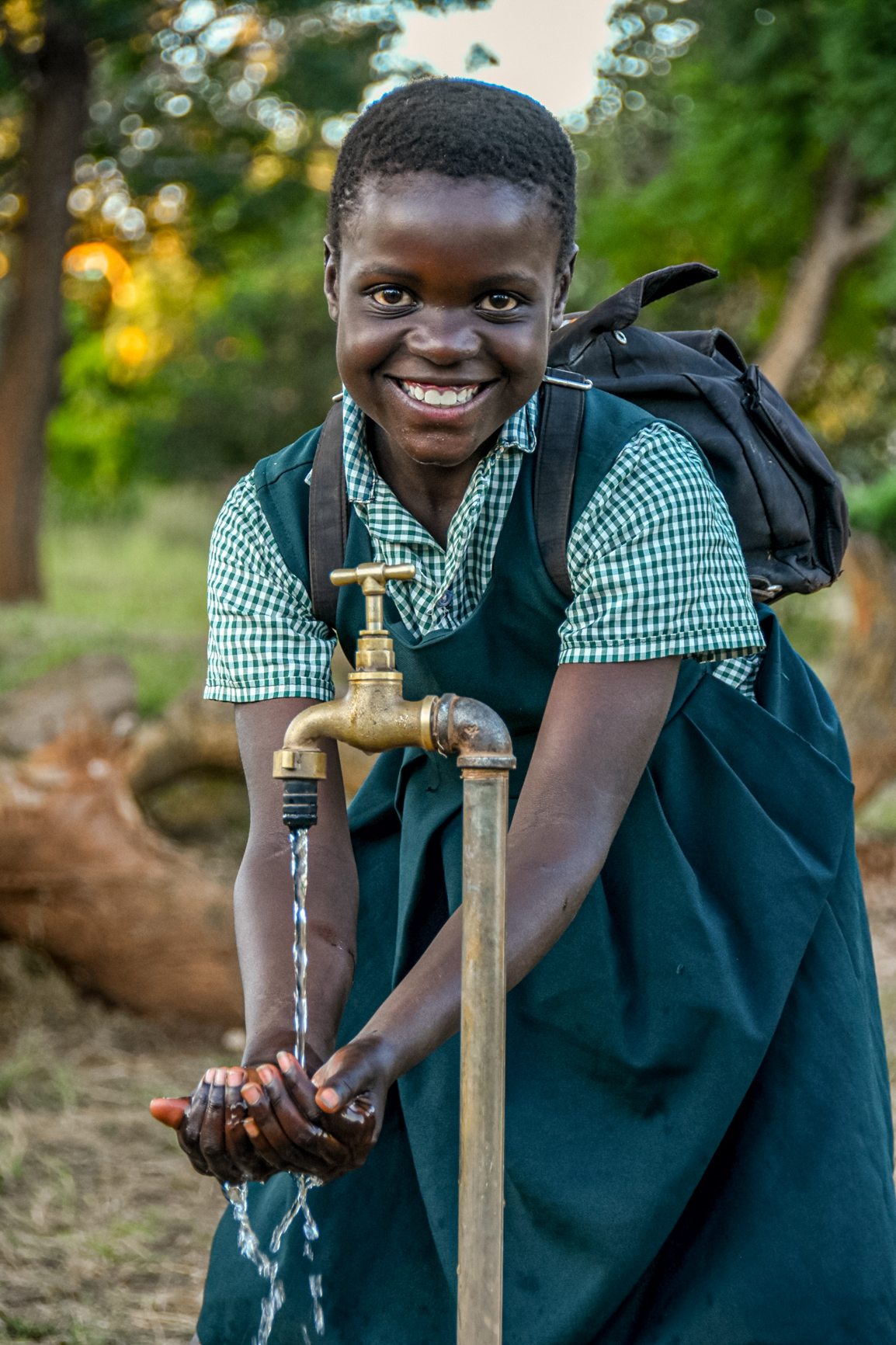
My plans for the future
My interest in World Vision’s work with vulnerable children stems from my core interest in Child Development, a large part of my Psychology degree.
Childhood years are so crucial in development; it affects our later relationships, later behaviour, later pretty much everything – it plays such a big role in shaping who you are today!
This is why I passionately feel that every effort should be made to aid positive development in children, one way being through practical changes such as providing access to clean water. By providing this basic human right, it allows children like Otiliya to focus on their personal development through education and play.
As I head into my final year, I’m bursting with ideas for my dissertation! Beyond that, my time at World Vision has confirmed for me that I do want to spend my career advocating for vulnerable children, wherever they may be.

